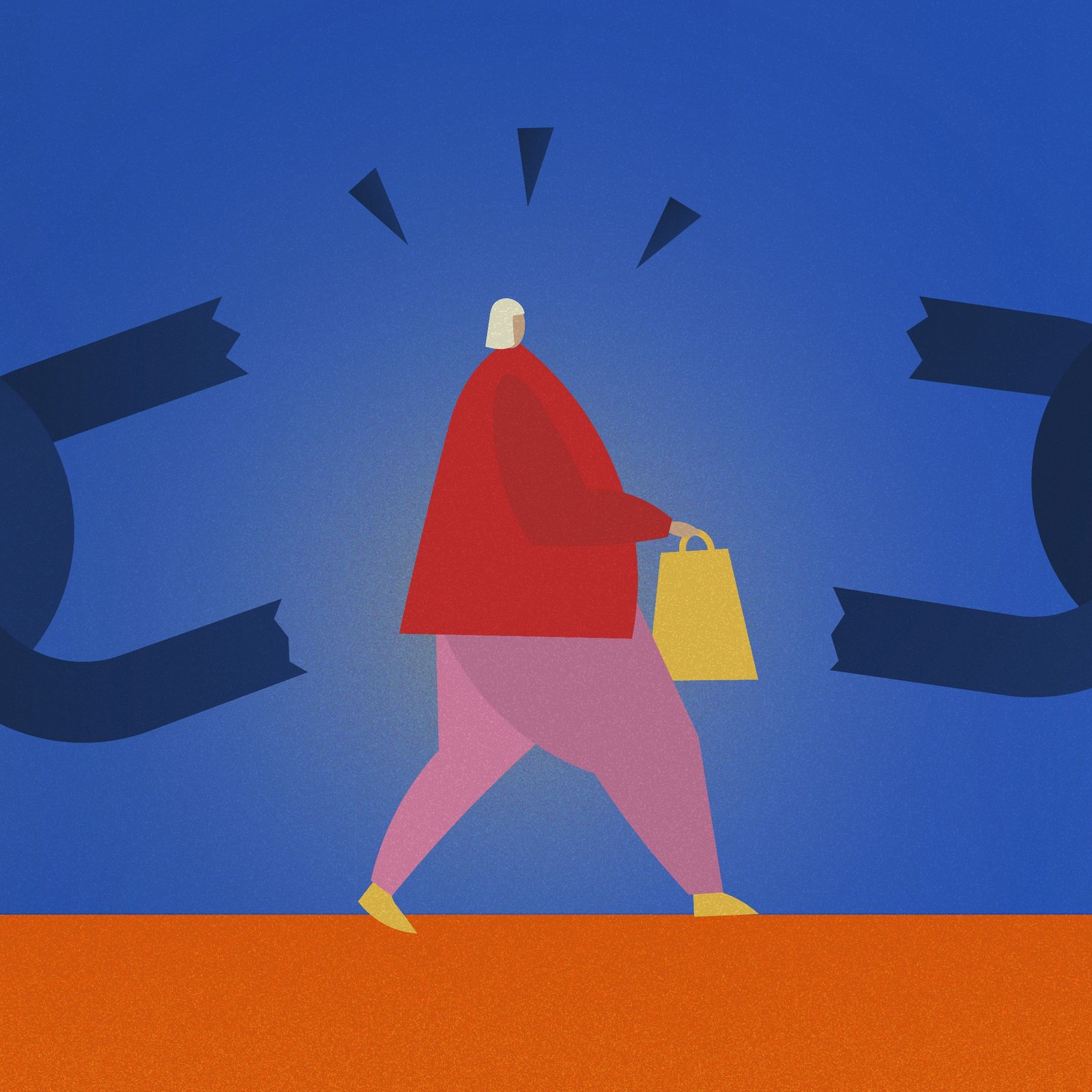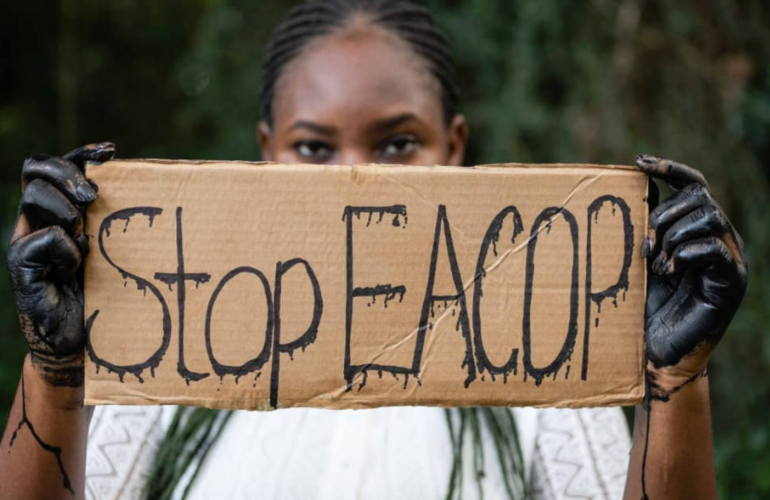A t-shirt. A bowl of rice. A warm bath. Each one of these is the final product of a long and fragmented supply chain. Part of contemporary capitalism’s glossy facade is its ability to invisibilise exploitative and extractive mechanisms which are employed from the production of raw materials, all the way through to distribution. This glittering veil contains just the right amount of instagrammable potential to create a paradise of ignorance.
In shado’s recent event ‘Broken Links in the Supply Chain’, we heard from an impressive array of speakers who brought justice for workers’ rights to the centre stage. The message was clear: poverty is political; supply chains are built for the sake of the few at the expense of the many and we desperately need regulation to control the wild west of transnational corporatist power.
I began to think about how corporate accountability is often buried through a feigning of ignorance, enabled through what Emily Dorotetheou calls “contractual murkiness”, but what I consider instead to be a wider process of invisibilisation.
This ‘invisibility’ is created as the exploitation of lower-paid employees is hidden in commercial contracts, creating layer after layer of sub-contracted zero-hour workers. It is a flexible, efficient and cheap solution for extended supply chains. Now more than ever, this invisibility has been exacerbated as workers deemed ‘essential’ to our economy are forced to work, whilst the criminalisation of unnecessary external journeys keeps white collar employees in the safety of their own homes. Aja Barber’s focus on the parasitic consumption patterns of fast fashion consumers highlights that, for those who are financially secure, house-bound confinement has aided performative ignorance on a consumer level. Indeed, despite the emergence of Boohoo’s contemptible working conditions in its Leicester factory, the retailer reported a 45% increase in sales in the pandemic, proving that humanitarian scandals become evanescent in the pursuit of the cheap.

Ignorance is usually defined by a lack of knowledge. However, we have seen ignorance shift from being the justification for labour force creation during colonialism, to becoming a modern day managing method and an excuse for a lack of accountability. In the 15th century, Spain expanded their colonial frontier in the so-called ‘New World’ by creating a labour force from “Indigenous people, who were ignorant of Christ and needed first to be told of him and of his vicar on earth” (A History of the World in 7 Cheap Things by Patel and Moore). Colonists conceptualised themselves as ‘society’ while comparatively BIPOC were categorised as ‘nature’ – an exploitative source. The 1513 Requierimiento, a document read aloud in Spanish to Indigenous people, subjected them to generations of enslavement and forced labour through both these conceptual justifications. Where the ‘ignorance’ of the workers was once used as the colonisers’ violent tool to acquire labour power, it has paradoxically now been flipped: corporate and consumer ignorance is now used as a shielding mechanism to ignore exploitation of the labour force.
In the wake of the pandemic, we saw supply chains disrupted, and their mechanisms made slightly more visible. Reduced demand saw major retailers postpone or cancel orders with suppliers that were already waiting to be shipped. The drastic reduction in volume forced the closure of factories in Sri Lanka, Bangladesh, Myanmar, Indonesia, Albania, Kenya, Ethiopia and across Central America. In response, we saw a surge of workers’ rights movements, (notably the UK has been comparatively quiet on this front), and in the #PayUp campaign, garment workers demanded to be paid as global fashion brands refused to pay over $16 billion worth of goods. Arcadia (previously Topshop), Walmart, Urban Outfitters, and Balmain are just some of the few who are yet to fulfill their payment commitments.
The pandemic has caused the global economy to contract. Ruth Ogier, spokesperson for the charity War on Want, highlighted the precarious nature of job security for people down the lower end of the supply chain, as risk has been shoved on to them, and not onto the higher-earning – in some cases billionaire – owners. Ayesha Barenblat implored us to recognise that the supply chains are built exactly how they are supposed to be; built on a colonial legacy and perpetuated by neo-colonial trade routes on the systematic exploitation of people of colour. The ILO reported that an estimated 19% of all wage earners are now paid at or below the applicable hourly minimum wage. However, excluding the Arab States, (due to insufficient data), the ILO states that the proportion of wage earners below or at the minimum wage is highest in Africa and lowest in Europe and Central Asia.
In the UK, we continue to see unemployment increase with a disproportionate percentage of people of colour out of work. Whilst the fear of financial insecurity insidiously seeps throughout the nation, the market has also seen the highest ever rise in zero-hour contracts due to covid-induced increased demand, reaching 1 million, with 52% of these people identifying as key workers. This fear becomes a point of exploitation, as workers’ rights are rolled back for the sake of income. The ONS revealed that 20.1% of the health and social industry are employed on a zero work- hours contract. Whilst we might clap our nation’s ‘heroes’ working on the frontline, they are rewarded with contractual job insecurity.
A t-shirt, purchased from and distributed by JD Sports
In 2016, a Channel 4 documentary exposed the working conditions of the Rochdale’s warehouse as “worse than a prison”. Six years on from such allegations and I was able to interview a recent ex-employee who acquired a zero-hour contract at the beginning of Autumn. From his testament, it was clear things hadn’t improved.
The warehouse operates as a police state. To both enter and exit, workers must go through security – “literally like an airport”, taking up to 40 minutes of unpaid time. They were also subject to random drug tests, the climate of fear increased by “security walking around all the time, randomly asking you to empty your pockets”. This was to ensure that nobody has their phones on them “because they don’t want people taking pictures of the warehouses”.
A three strike policy for actions like “sitting down or having your phone” would be cause for contract termination, something JD Sports six years ago “categorically” denied.
The source went on to describe an accounting trick, designed to “roll out” weekend pay on to the next payslip, but for which payment mysteriously never seems to be made. “Everyone in the warehouse is aware of this and talks about it as if it’s normal and understood. But when you actually ask someone how it works, and at what point you should actually get your money back – no one really knows”.
Problems of underpayment were consistent as he stated that “every week, when they counted the hours, they’d just do it wrong. You never get paid the full amount that you deserve. Never. Every Friday, I was in that office asking them why I wasn’t getting paid my full 16 hours”.
Think Tank High Pay Centre recently reported that JD Sports was found to have the biggest gap between pay for their chief executives and the average worker. It is clear that the invisibility of JD Sports’ warehouse work is a prerequisite for efficient production.

A bowl of rice, imported from the paddies in Punjab:
In 2019, the UK imported $531.1 million worth of rice; 20% of which is imported from India. Half of this rice comes from Punjab state, known as the ‘food bowl of India’. It is predominantly an agriculture-based economy, and although it only contributes to 15% of India’s national income, more than 50% its workforce is sustained by it. The UK is part of the market-expanding opportunity that contributed to the pro-market reforms rushed through by the Bharatiya Janata Party-ruled government in September. The reforms seek to deregulate the production, storage and movement of food under the Essential Commissions Act (1990), which for neoliberalists has been the red-tape curtailing the opportunity for foreign private investment and growth.
The neoliberal project promises the farmers increased revenue and productivity . However in reality, livelihoods of smallholder farmers will destabilise with the fluctuation of food prices and crop speculation. They will no longer be safeguarded by the government’s current minimum supporting price scheme. Opposition to this had been widespread, as the farmers’ strike has caused the largest protest in history.
Although the reforms have been suspended, they are demanding the complete erasure of the reform, and will not cease their political occupation in Delhi unil this is achieved.
A warm bath, heated from British Gas energy: #stopthebritishgasfire
Subscribe to shado's weekly newsletter
Exclusive event news, job and creative opportunities, first access to tickets and – just in case you missed them – our picks of the week, from inside shado and out.

Since January, the GMB trade union has called for a strike as thousands of workers protested against the company’s pushing of contracts with poorer conditions and reduced pay. These key workers have been rewarded with the roll out of a ‘fire and rehire’ strategy, taking contracts away from workers who have held them for decades.
The pandemic has proliferated the use of this corporate strategy. The TUC published a poll that stated nearly 1 in 10 workers had been told to reapply for their jobs on inferior conditions since the first lockdown in March. Within this, twice as many workers of colour have experienced this over their white counterparts.
Whilst the world seeks to recover from the global pandemic, governments who are desperately clinging on to ‘business as usual’ will deepen neoliberal interdependence and favour profit over people. Corporations are exploiting people’s fear of financial insecurity and are opportunistically rolling back workers’ rights. There are people behind the commodities that we consume, behind the T-shirt, the bowl of rice and the warm bath – we must never forget that. We must stand in solidarity with workers in the fight against the reign of transnational corporatist elitism. And as Swatee Deepak’s campaign so clearly tells us: when you look at the items around your home, remember who made them.















